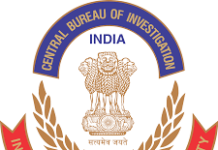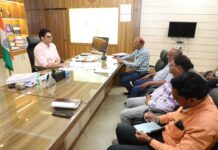
The delegates who came for the G20 special Think 20 programme visited the Madhya Pradesh Tribal Museum on Monday.
Tourism, Culture and Religious Trust and Endowment Minister Usha Thakur traditionally welcomed all the delegates. Tribal folk artistes also welcomed the delegates with tribal dance form Bhadam. The delegates visited various galleries of the museum, photo exhibition, Chinhari souvenir shop and library ‘Likhandra’. They also praised the galleries of the museum and the fine display and artistic combination of the oral and art tradition of the tribal community.
The guests got to know the cultural glimpse of Madhya Pradesh through a cultural programme at the Tribal Museum. It was shown in the presentation that the state of Madhya Pradesh is multi-lingual and a state of cultural plurality. This is also the identity of Madhya Pradesh at the national level. The cultural heritage of Madhya Pradesh is formed from the beliefs and spiritual ideologies of Shaiva, Shakta, Vaishnava, Jain, Buddhism and Islam religions and their holy places. The presence of gods and goddesses of an ideology and its narratives shape the culture of that land. For example, due to the presence of Maryada Purushottam Shriram in Orchha of the state, like Rajaram, the entire Bundeli land has been cultured royally. With the presence of Lord Shiva, the ruler of death, in the context of Malwa, one can experience the Shiva-like life in the culture here. The basic element of the culture of Madhya Pradesh is its generosity and tolerance. There is a sense of respect for each other despite the difference in ethics, food and dress made from all spiritual ideas. This presentation has been prepared on the basis of the cultural generosity of Madhya Pradesh, regional specialties and the arts derived from it, in which the holy places and the stories related to them are being presented with symbolism. In the closing session of the programme, the delegates enjoyed folk and traditional dishes. Director Culture Aditi Kumar Tripathi, Academy Director Dr. Dharmendra Pare, President of Tribal Museum Ashok Mishra and other officers and employees were present.








